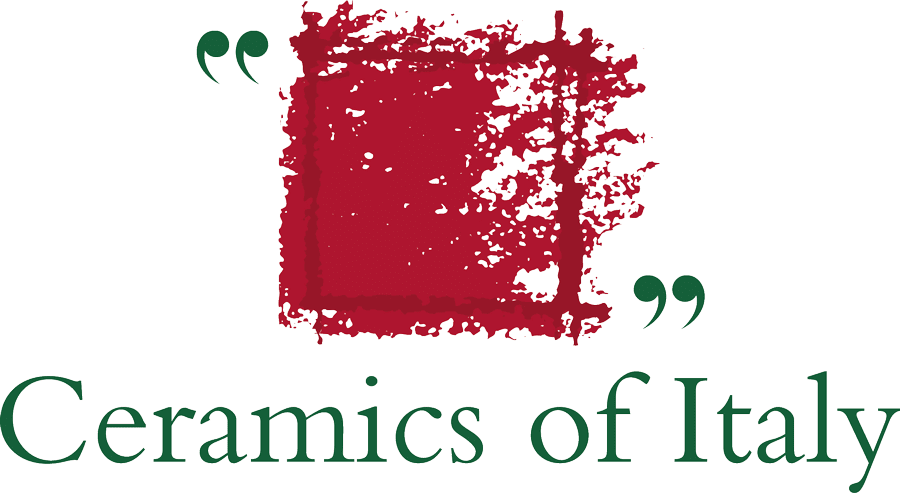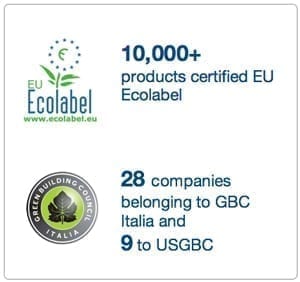Context
Product quality, design, innovation, Italian origin and the product sustainability profile are all key intangible aspects that enable the Italian ceramic industry to maintain and strengthen its leadership. The products made by Italian ceramic manufacturers are used as surface coverings in residential and non-residential contexts and optimise the spaces where they are installed.
Green product innovation
Clearly, the intrinsic characteristics of ceramic products make them preferable to other materials in terms of their limited impacts over their life cycle. Their resistance to extreme atmospheric conditions, chemicals, humidity, temperature variations and UV rays mean they are highly durable (estimated life cycle of more than 50 years) and therefore comply with the principles of the Circular Economy. For these reasons, ceramic products are also ideally positioned with respect to the new Minimum Environmental Criteria made obligatory by recent regulations (Procurement Code) covering the building activities of the public administration.
Ceramic product life cycle and Environmental Product Declaration (EPD)
The Italian tile industry recently analysed the product’s environmental impacts over its entire life cycle by means of a Life Cycle Assessment (LCA). The assessment was conducted by the University of Modena and Reggio Emilia and compared the total life cycle impacts of different types of floor covering materials: porcelain tile, carpet, parquet, marble, resin and linoleum. It revealed the superior environmental performance of Italian porcelain floor tiles. The sectoral EPD (Environmental Product Declaration) was based on primary data for 84 factories accounting for 82.6% of Italian ceramic tile production. The EPD is an independently certified and verified Environmental Product Declaration which provides a transparent and objective statement of a product’s environmental performance over its entire lifetime in accordance with international standard ISO 14025. Some companies in the district have already published Environmental Declarations for their products.
Ecolabel
As for environmental product certifications, Italy is the leading country in terms of the number of companies boasting the EU Ecolabel, the European Union’s ecological quality mark which selects the products and services with the best environmental performance over their entire life cycle. 10 Ecolabel licenses have been issued covering 32 sector brand names and more than 10,000 certified products.
ISO Sustainability of ceramic products
The Italian tile industry has promoted the creation of a new ISO international standard defining the characteristics that a ceramic tile must possess in order to be considered sustainable (ISO 17889 – Part I – Ceramic Tiling Systems). The draft standard, which is close to receiving final approval, removes all uncertainty with regard to interpretation of sustainability by adopting a practical “compliant/non-compliant” approach and allows products to be differentiated by means of a measurable score.
Ceramics for Green Building
Ceramic products can be certified as complying with the main international green building assessment protocols (LEED, BREAM, etc.). Ceramic products may be compliant because they possess many of the characteristics required to earn credits, such as: a content of at least 20% by weight of post-consumer recycled material or the equivalent percentage of pre-consumer recycled material, the absence of VOC emissions, sector or product EPD certification, and optimised energy performance.
Sources of information – Regulatory references
- ISO/TC 189 – Ceramic tile
- EPD Italian ceramic tiles Confindustria Ceramica – 2016
January 2019



 Architects
Architects
 Dealers
Dealers



